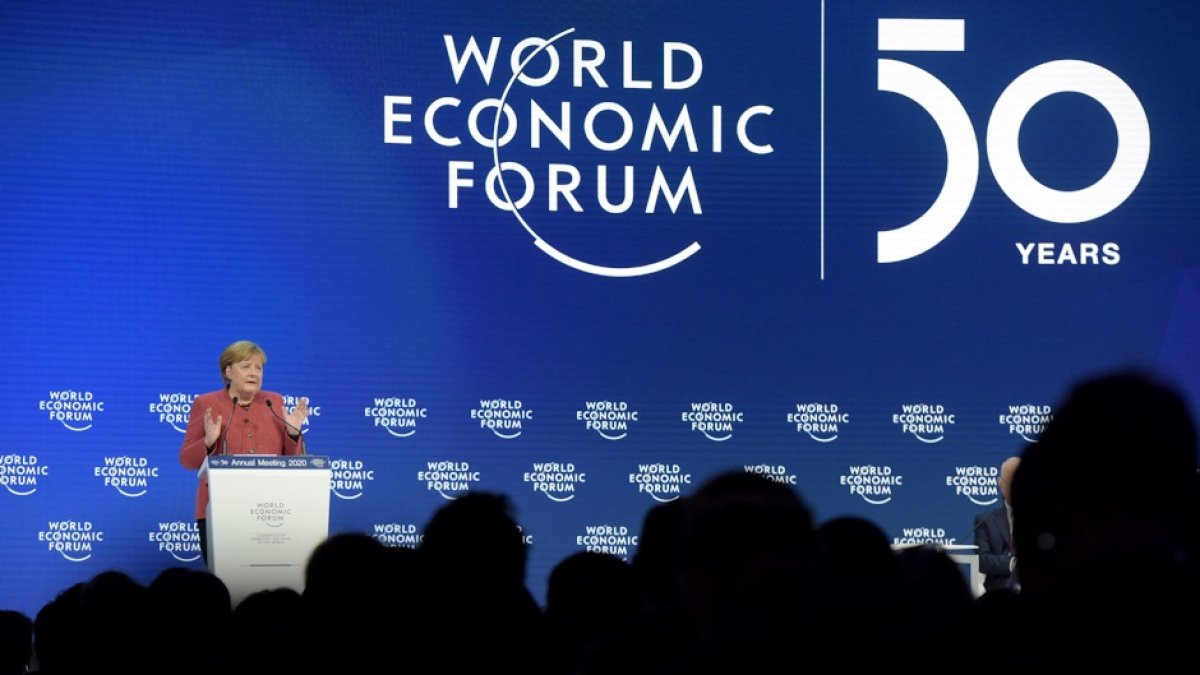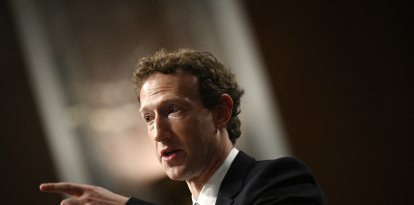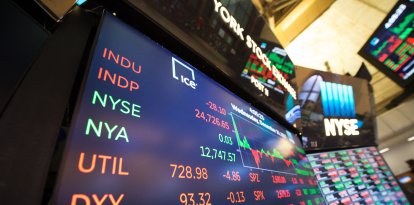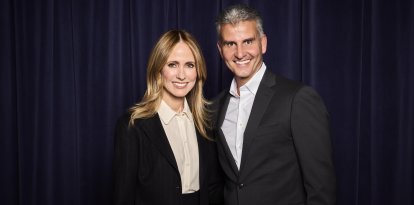The origins of the ESG: the convergance of large financial institutions and unelected politicians
Environment, society and governance. Three areas for the convergance of financial capitalism and the 2030 agenda.

World Economic Forum at 50 / Cordon Press.
We are used to new policies falling like bombs on a battlefield where there is a consensus in the field of public management and the media, with no recollection of a debate in which the people participated. One of these policies is the ESG criteria, an acronym for Environment, Society, and Governance.
In reality, these criteria are far removed from the day-to-day decisions of the vast majority of us. It is a matter of conditioning the investment decisions of large or very large companies. However, those decisions end up affecting us. Currently, $41 trillion is under management, and by 2025, $50 trillion will be under management, twice the GDP of the United States. So, what is ESG, and how did it come about?
The left’s agenda
Michelle Cordero, digital content manager at Heritage Foundation, defines it as follows:
The scoring based on proximity to the official ideology, which gives the ESG a Chinese-style capitalist character, is a relatively recent system, not something from the beginning of time. Politicians were not part of this creation, they came later. It starts with banks, large insurance companies, and the largest fund managers.
The first official mention of this goes back to 2006, in the United Nations report Principles for Responsible Investment (PRI). Before that mention, several actors were already preparing the ground work.
Banks, insurance companies, and investment funds
As far as the actors are concerned, the Finance Initiatives of the UNEP (United Nations) have been bringing together the world's leading banking and insurance companies since 1991. The institution has created an Asset Management Working Group, made up of 12 leading companies, dedicated to a set criteria on investment responsibility, as well as social and environmental impact.
Another major player is the International Corporate Governance Network, which has brought together more than 300 funds since 1995 to unite managers around common principles. There is also Just Pensions, which brings together several British investment funds, which had stated its intention that the investments of the capital they control "contribute to the Millennium Development Goals, in improving the social and environmental impact of international trade and investment in developing countries.”
World Economic Forum
As far as the reports are concerned, the first is based on a survey of CEOs conducted by the World Economic Forum in 2003, entitled Values and Value: Communicating the Strategic Importance of Corporate Citizenship to Investors. The report acknowledges a disappointment with Socially Responsible Investment (SRI) which they see as a lack of ambition.
Those behind this push for IHR reform are "a group of U.S. State and City Treasurers and Trustees, with fiduciary responsibility for some of America's largest and most influential pension funds." The most striking aspect of the report is that it coins the concept of “citizen enterprise,” although it does not define what it consists of.
18 financial institutions
The two most definitive steps were taken with the Who Cares Wins report from 2004 and the Freshfield report from 2005. It is worth looking at who is behind it: 18 financial institutions from nine different countries. They are: ABN, Amro, Aviva, AXA Group, Banco do Brasil, Bank Sarasin, BNP Paribas, Calvert Group, CNP Assurances, Credit Suisse Group, Deutsche Bank, Goldman Sachs, Henderson Global Investors, HSBC, Innovest, ISIS Asset Management, KLP Insurance, Morgan Stanley, RCM (Allianz), UBS, and Westpac.
The Freshfield report was commissioned by UNEP from the law firm Freshfield Bruckhaus Deringer, one of the firms that is part of the "magic circle" of the top five law firms in London. This report is important because it provides an ideological basis for the change of the SRI to ESG.
Beyond the law
The report mentions that "many people wonder what good an extra percent or three of patrimony are worth if the society in which they are to enjoy retirement and in which their descendants will live deteriorates."
The truth is that if you go through the web Our World in Data, it is not easy to find reasons to think that we are getting worse, and many think exactly the opposite. The bad news is often linked to politicians, such as the deterioration of democracy in the world. But the news is usually good, and it tells the same story over and over again: as we get richer in capital and knowledge, we get better. Pollution is a clear example. Also, the recovery of certain animal species, or forests. We may be the first generation to achieve an increase in forest area in many centuries. We can also talk about poverty in historical terms.
All of this has been achieved through partnerships that provide ample freedom within the law. The report Freshfield takes a very different approach:
A Chinese model for capitalism
The definitive change came in 2020, when the World Economic Forum and the International Business Council, under the leadership of Brian Moynihan, created a Chinese model for global capitalism: The creation of a scoring system to rate each company based on how it approaches the goals set for ESG. Just as "Chinese citizens" have a scoring system that conditions their lives, under the observation of a panoptic state, "citizen companies" are scored according to their closeness to a set of criteria.
The companies in charge of setting the criteria were the four major consulting firms, which were each responsible for one area: governance principles (Deloitte), environment (PwC), people (KPMG) and prosperity (Ernst & Young).
The initiative is embodied in the report Davos Manifesto 2020: The Universal Purpose of a Company in the Fourth Industrial Revolution. The consulting firms established 34 indicators to measure investors', companies' and countries' adherence to the EGS principles. Several of these indicators are linked to the 2030 agenda.
Argentina, ESG model
The world's number one country in the ESG index is Finland, followed by Sweden, Iceland, Norway and Switzerland. Australia, in sixth place and New Zealand, which is eighth, are the top non-European countries in the index. They are joined in the top ten by Denmark and Portugal.
The ESG index is sometimes difficult to interpret because the United States ranks 46th in the world, below Argentina (36th), which theoretically is not an economy or a society that is usually referred to as an example of good management. Venezuela ranks 131st and Cuba 105th.

























